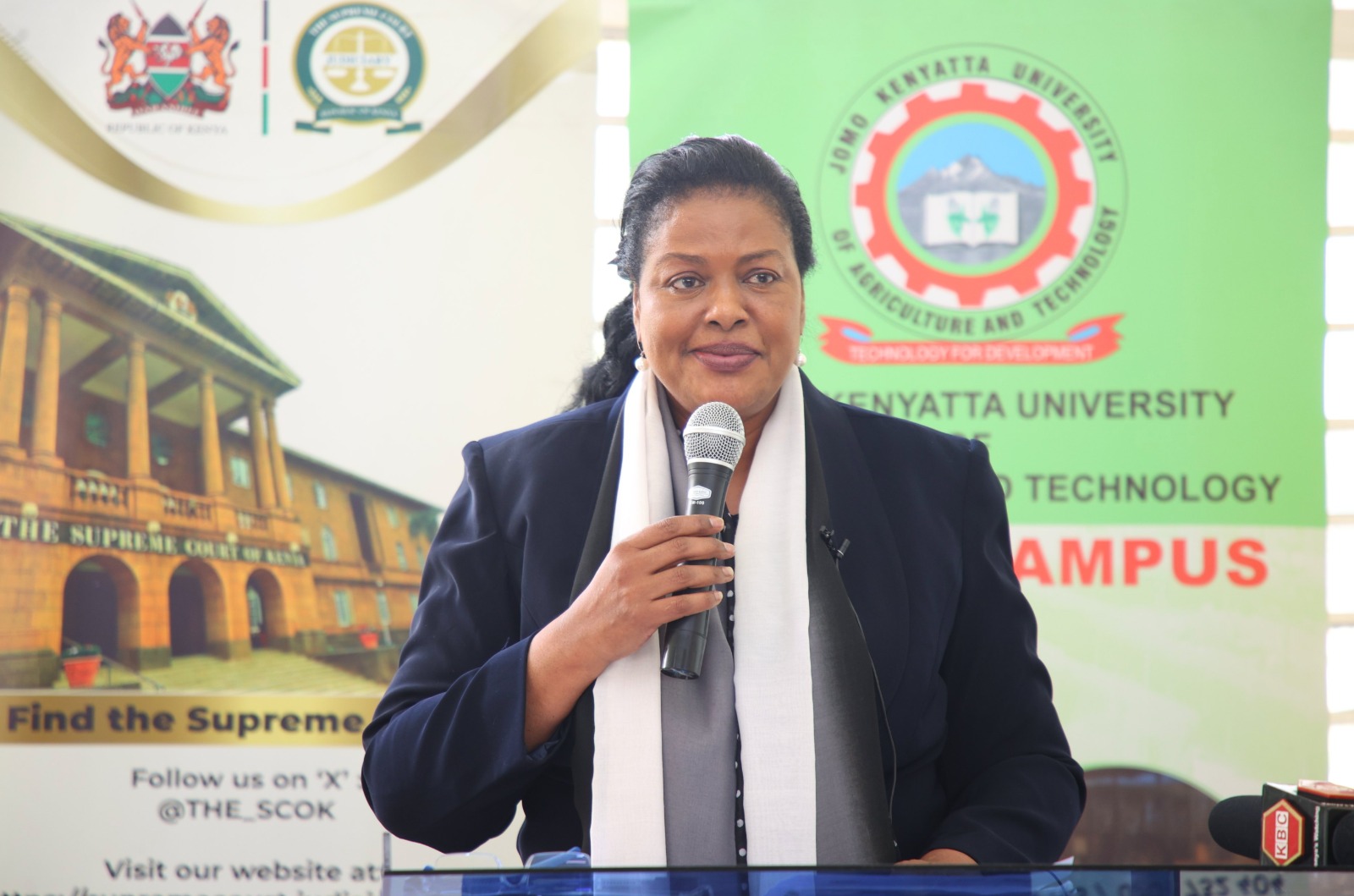
 Supreme Court Judge Njoki Ndung'u speaks at JKUAT's School of Law on family law and matrimonial property, February 12, 2025. /JUDICIARY
Supreme Court Judge Njoki Ndung'u speaks at JKUAT's School of Law on family law and matrimonial property, February 12, 2025. /JUDICIARY
Supreme Court Judge Njoki Ndung’u has said childbirth is considered a contribution a wife made to a marriage in the event that the union is dissolved.
She said should a dispute arise during the division of matrimonial property, the court will make a determination based on the number of children the wife had for her ex-husband even if she made no monetary contribution during the lifetime of the marriage.
“There’s one school of thought that has said when we dissolve a marriage, property must be divided at 50-50 and they said that that is what the constitution says,” the judge said.
“But there’s another school of thought that says no, what should happen is we should assess what a partner has contributed to the marriage and then we give it equitably,” she added.
Justice Ndung’u said both direct and indirect contributions, as well as monetary and nonmonetary contributions, are factors for consideration during the division of matrimonial property following a divorce.
She gave a hypothetical example where the husband is employed and takes a mortgage for a house but the wife is a housewife who has borne him six children.
The court will look at it from the perspective that the house had someone running it while the husband was away working, including feeding the family and preparing the children to go to school.
“The court will take into consideration and has taken into consideration as a contribution even the factor of childbirth, and it can be assessed in terms of percentage as well as the man who with salary contributes to the mortgage,” Justice Ndung’u explained.
The judge was speaking at the Jomo Kenyatta University of Agriculture and Technology (JKUAT) School of Law on the Supreme Court jurisprudence on family law as the apex court commemorates 12 years since inception.
Justice Ndung’u said division of matrimonial property is often very controversial because parties rarely consider indirect and non-monetary contributions to the union.
She made reference to a 2020 divorce case that came before the Supreme Court where a couple married under customary law sought dissolution of the union.
The judge said that the Supreme Court held that Article 45(3) of the constitution provides for equality of rights between spouses during dissolution of marriage, but does not automatically grant a 50:50 division of property without proof of contribution.
In the case, a lower court awarded the wife a 30 per cent share of the matrimonial home and 20 per cent share of rental units they had constructed during the subsistence of the marriage.
Aggrieved by the decision, the wife appealed the decision, and the appellate court ruled that the property be divided on a 50-50 basis after assessing her beneficial interests.
Justice Ndung’u said the man moved to the Supreme Court to challenge the decision. She said the man argued that the constitution speaks of equality in marriage but does not mean that the property be divided equally upon divorce.
“We did dismiss this appeal; we upheld that the 50-50 distribution was the correct one but we did say that the equality in Article 45 of the constitution does not apply to matrimonial property. Matrimonial property will be done on the basis of contribution and it will be done case by case.
“So the courts below us have to check each case by case and consider the contribution that was made and in this particular case we accepted that the 50-50 ratio had been done correctly.”

